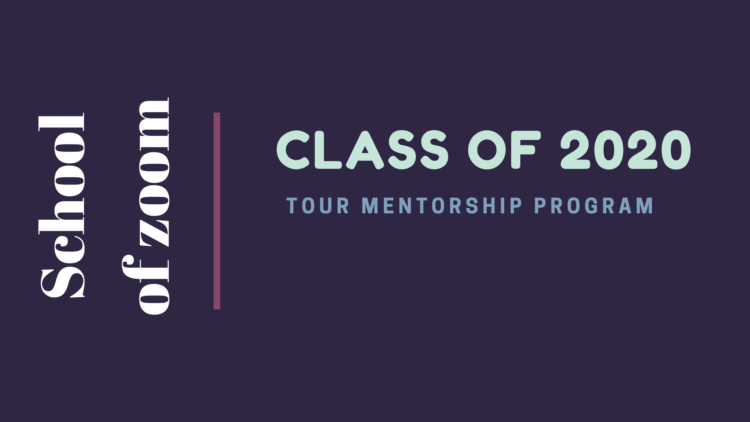Tour Mentorship Program

Over six jammed packed sessions in May, CircuitWest’s Tour Coordinators Rebecca Nelson and Natalie Di Risio mentored three regionally based producers in all things touring.
As part of CircuitWest’s 5-year Touring Strategy Beyond the Night Stand, a Touring Mentorship Program was born – an important initiative intended to build the skills of regionally based producers or independents. The program is to enable participants to develop skills in tour management from beginning to end and to undertake employment as a Tour Coordinator for their own work or for other artists and producers in their region.
This moves away from a Perth-centric model of touring empowering people in regional areas with the skills to manage work into multiple venues across the state.
Applications for the program were received from across the state and three participants were selected: Ainsley Foulds from Ravensthorpe – seeking skills and mentorship in launching a mini regional touring model for Ravensthorpe and neighbouring communities; Annette Carmichael from Denmark, who is about to embark on a state-wide tour of The Beauty Index, a community-based dance performance, choreographed by Annette; and Joel Pearson, a producer, presenter, performer based in Geraldton (and Euphorium Creative’s In House Gen-Z).
The six learning sessions were developed and tailored from the needs and interests of the participants, and covered the following;
- An Introduction and Presenters & Programming: A sector overview, understanding what presenters consider in terms of programming work as well as understanding our own process when we decide we want to tour;
- Engaging a New Touring Model: A session with Arts North West, joined by Guy Boyce former CEO & Artistic Director at Mandurah Performing Arts Centre to discuss Ainsley’s regional touring network model;
- Considering the Why: Understanding what presenters consider in terms of programming work; looking at the genres, financial factors and community needs of each town – looking at three great case studies in Harvey, Narrogin and Albany;
- Connecting with Presenters: Facilitating the development of long-term relationships between producers and presenters, and exploring arts markets and pitching events across Australia;
- Community Engagement: Exploring best-practise examples of community engagement; discussing the many different types of engagement, where to start, who, how and when to engage;
- Itineraries: The crazy world of tour itineraries – the scheduling process, templates and handy tips;
- Budgeting for Tours: Delving into all the costs associated with touring – remount and weekly costs, royalties and touring costs. A detailed look at budget templates, as well as award rates and allowances;
- Touring Grant Applications & Funding: A look at funding, sponsorship and philanthropic avenues available to performing arts, and what is required for an application to Playing WA – the state’s touring fund;
- Marketing for Tours: Using the right language and ensure that what’s provided in the marketing kit is the right fit for presenters;
- Technical Specifications: The requirements and expectations between producers and presenters – who both play an important part in ensuring the information provided about the venue/production is easy to access, easy to understand and meets industry standard;
- Risk Management: The processes of identifying, analysing and responding to project risk, maximising the results of positive events and minimising the consequences of adverse events;
- Contracts: Looking at the contractual relationship between presenter, producer and tour coordinator; what’s in a contract, negotiations, cancellations, and a look at PACA’s ‘Touring Code of Conduct’.
- Mental Health on Tour: Practical suggestions, evidence-based tips and real-life examples for designing and delivering tours that promote positive mental health for the whole company, using the Tour Well Guide, by The Arts Wellbeing Collective;
- Tour Bible: Building a ‘tour bible’ (day by day schedule and important information for the touring party) and facilitating a good tour briefing and debrief;
- Evaluation and Reporting: The roles and responsibilities when it comes to reporting both on-tour and post-tour, collecting qualitative and quantitative feedback, and what’s required for grant acquittals.
Prior to COVID-19, the program was intended to be delivered in person at the CircuitWest office but was instead delivered entirely over Zoom. The program went down well with the inaugural class of 2020.
“The amazing and practical advice I received every time I asked a question was really, really amazing.”
It was a collaborative space, with participants encouraged to share, dissect and discuss, with a whole lot of opportunity for learning and growth.
Beck and Nat also led a 1-hour online touring training session hosted by The Blue Room Theatre on Thursday 11 June, which had 16 participants join from various performing arts backgrounds. This coincided with the release of CircuitWest’s On the Road Touring Guide.
Well done to our newly trained and skilled tour coordinators , you were great students!.
We plan to continue delivering our Touring Mentorship program in the future. Watch this space for upcoming dates!
